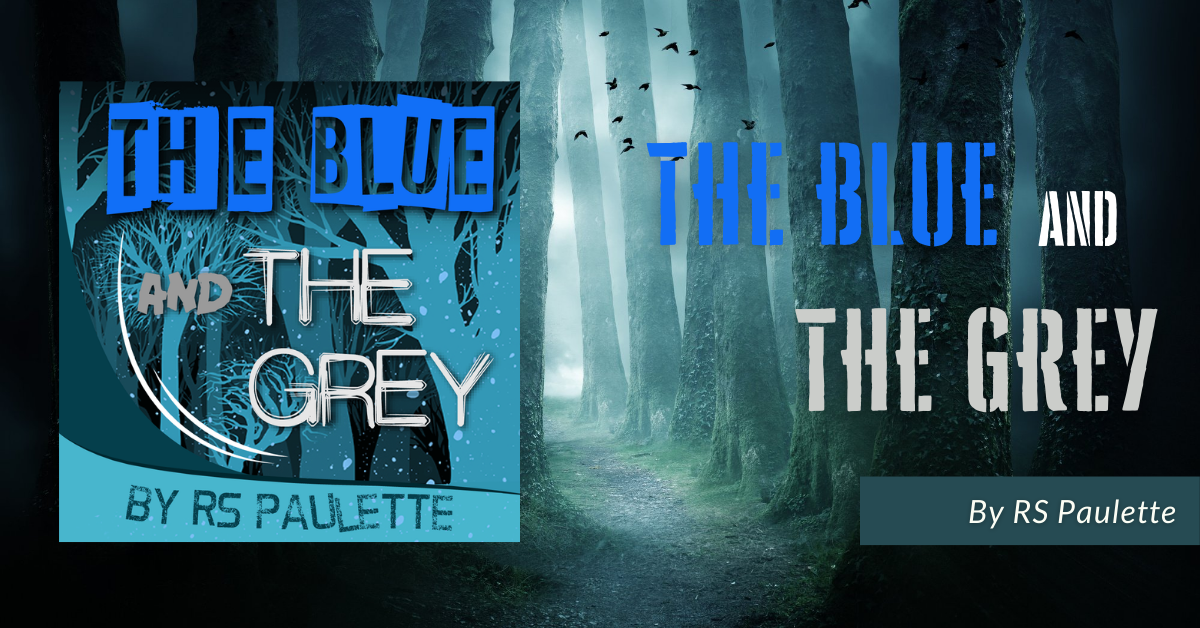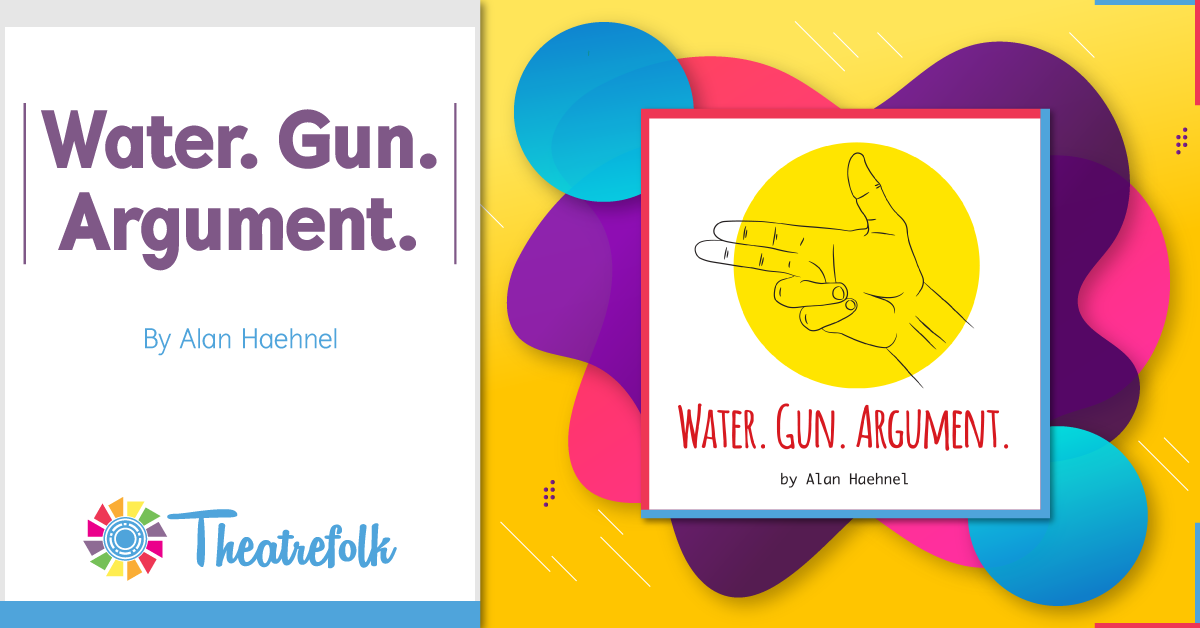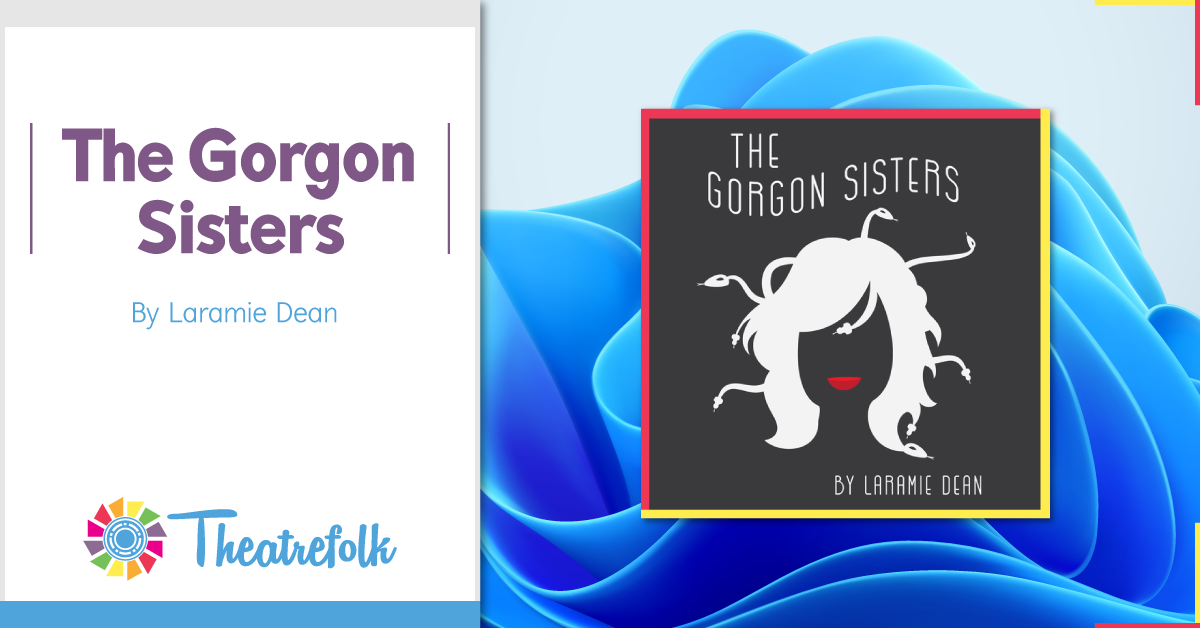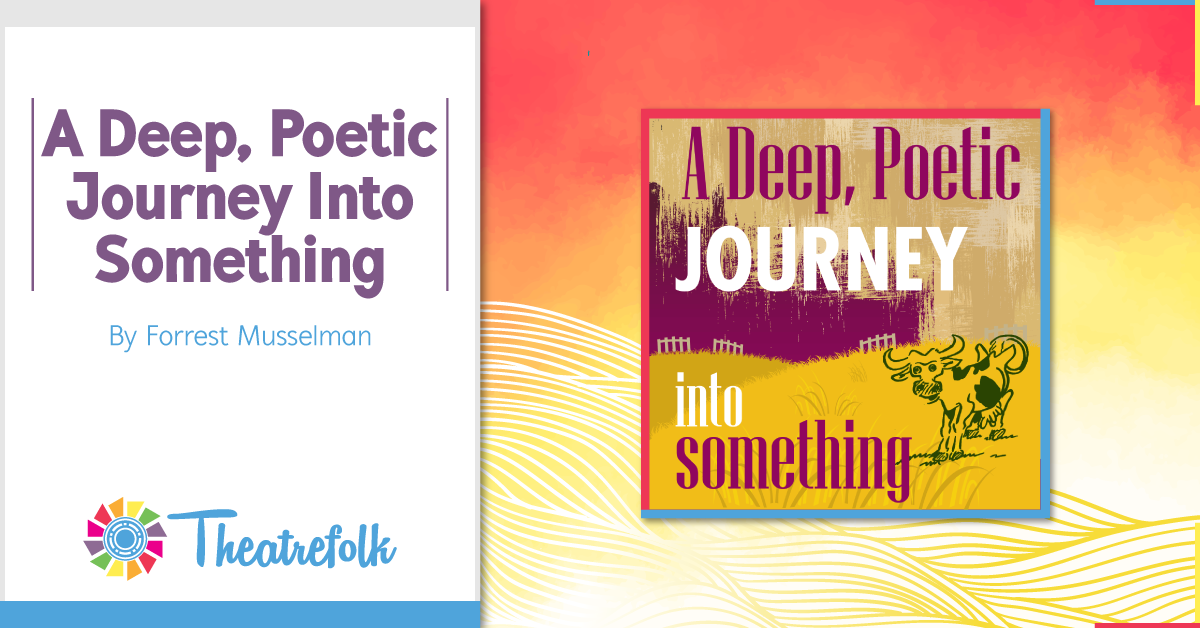Theatrefolk Featured Play: The Blue and the Grey by RS Paulette
Welcome to our Featured Play Spotlight. Today we look at ghosts, the civil war, Walt Whitman and ice.
Charlie is surrounded by ghosts. The ghost of an estranged father who leaves her an antique musket. The ghost of a classmate’s sister who cautions Charlie, The Grey will hear you.
Who are the Grey? Ghosts of Lost Confederate soldiers ambushed following the first battle of Fredericksburg, 1862.
As the Aurora Borealis light up the Virginia night sky Charlie must confront the living and the dead. She’s trying to find peace but will she make the right choice? What brings her to the centre of a barely frozen lake with the musket and her ghosts?
Beat! Beat! Drums! Blow! Bugles! Blow!
Why did we publish this play?
Theatre must be theatrical. Period. Which sounds like a given, but that’s not always the case when you’re reading a manuscript. Publishers often only have the printed script to go from (rather than being able to see the play produced). We have to be able to “see” the play on stage, and “see” what it would look like brought to life.
The Blue and the Grey is all that and more. It is haunting. It is exhilarating. It is theatrical. There is choral sound work that will make the hair on the back of your neck stand on end. And I haven’t even started talking about the unique, flawed, interesting characters yet.
Pick this play up now. Read it now. Buy it now.
Let’s hear from the author!
1. Why did you write this play?
The answer is a deceptively simple, as well as a little complicated. The “deceptively simple” answer is: I wrote this play for my students.
The “a little complicated” answer is: Coming off the previous year’s success performing Ray Bradbury’s Kaleidoscope, I wanted to challenge the students, but felt underwhelmed by choices I was seeing from my normal publishing sources. Simultaneously, I had a hankering for a “ghost play,” and had a notion involving Walt Whitman visiting Fredericksburg, Virginia — a historical fact a colleague of mine had recently written some newspaper articles about for local interest. Those two thoughts combined led me to understand exactly how I wanted to challenge my students, and that was with a play that mixed emotion, memory, history, poetry, and hauntings of various sizes, shapes, and textures into something that was uniquely ours.
2. Describe the theme in one or two sentences.
The theme is about the difficulty to escape one’s own past — be it personal, local, or national; and how the only way to cope with that difficulty is by making obvious connections in the unlikeliest of places.
3. What’s the most important visual for you in this play?
Certainly the climactic image — which was actually my starting point. At the risk of spoiling things, I always knew the most arresting moment would be a modern, teenage girl hammering at the ice beneath her knees with a Civil War-era musket, while Confederate ghost soldiers trained their own muskets at a child in a blue, puffy winter coat.
That was literally the first image that came to mind when I had the pieces in place, and I was always writing to that inevitable, inescapable choice for the main character.
4. If you could give one piece of advice for those producing the play, what would it be?
Embrace the ephemera of it.
I discovered through writing, and through the first production, how dreamlike and surreal the piece was — that some of the transitions and some of the moments developed a real dream-logic to it that I ultimately embraced.
Charlie’s line “Was I daydreaming sleep? Or was I a sleeper wishing I was awake?” summed a lot of that quality up for me, and it was a line that we refined and refined throughout production.
The sentiment of the line, though, came to me one morning before school started, in that special sleepless restlessness that comes midway through any production. I was walking into the cafeteria of the high school to go check on something in the auditorium, and I heard this underwater-sea-shell noise through the haze of my sleep deprivation. That sound, obviously an audio hallucination of some sort, struck me as the correct tone for the whole piece — the uncertainty of the way reality shifts around you when you’re half-awake and unsure of your surroundings. That’s also when the self-contradictory nature of the line came to me, and when I felt confident in exploring and expanding that quality.
5. Why is this play great for student performers?
I originally intended this to be more didactic — to teach the students who performed it more about history, particularly as it happened in our own backyard, an echo of which sentiment I gave to Morrissey early on. As we developed and performed the piece, however, it became clear that dramatic license would overtake the didactic qualities, so what really replaced it?
For me, it’s the sense of collaboration, both between myself and the cast, but also among each other. I still have students who remember with fondness their role in the ensemble and the difficulty in, say, matching the rain-tapping in Scene 10 with the emotional intensity of the actor playing Darren. The effect of that moment — of actually listening to, and responding with, the emotional crests effected by that particular actor, and how in tune with each other and each other’s performances they all had to be spoke tremendous volumes to the performances that they each managed from the piece.
Though the play is undoubtedly Charlie’s, it’s a play that begs for an ensemble to work together to achieve its effects. So as student performers, they had to be so in touch with each other on an emotional and on a performance level, that surprises, changes, feints, new wellsprings, and old habits could be indulged, experimented with, discovered, exposed, and incorporated by all.



